The US passed a law restricting the sale of data to foreign countries, warning of threats from the Russia-China-North Korea-Iran quadrilateral, Canada sending troops to Ukraine but not participating in the war, canceling a bid with China, Sri Lanka awarding a contract to India... are some of the notable international events in the past 24 hours.
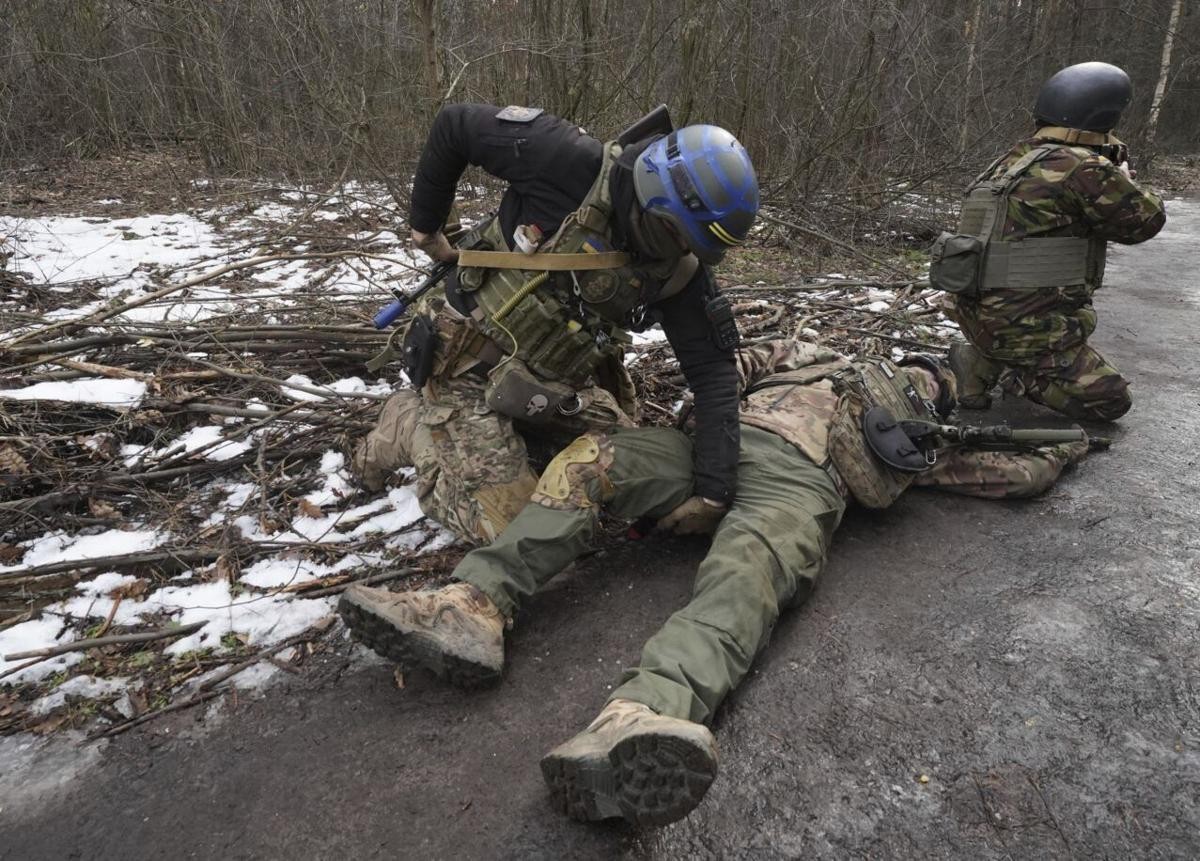 |
| Ukrainian soldiers simulate evacuating a wounded comrade and providing first aid during tactical training at a shooting range in the Kharkiv region, Ukraine, on Feb. 29, 2024. (Source: Toronto Star) |
The World & Vietnam Newspaper highlights some of the day's international news highlights.
Russia-Ukraine
*Russian security announces CIA bases on Ukrainian territory: Head of the Russian Federal Security Service (FSB) Aleksandr Bortnikov confirmed that there are currently many bases of the US Central Intelligence Agency (CIA) located on Ukrainian territory.
The press secretary of the Russian President, Mr. Dmitry Peskov, also stated that the number of CIA bases on Ukrainian territory is 12. However, the Russian press believes that this number is still lower than the reality.
The FSB chief asserted that the CIA has been operating in Ukraine “for a long time.” When asked whether Russia could “get a handle” on the CIA’s base in Ukraine, Mr. Bortnikov said: “The work is underway.”
Previously, the New York Times, citing former officials and officials from Ukraine, the US and Europe, revealed that in the past 8 years, the CIA has opened 12 secret bases on Ukrainian territory, near the Russian border. (Anadolu Ajansi)
*Canada sends troops to Ukraine but not to fight: According to the Toronto Star, on February 29, Canadian Defense Minister Bill Blair said that the country is willing to send a certain number of troops to Ukraine to train the country's army, as long as the activity is far from the front line in the war with Russia and in a non-combat role.
Blair said the idea was discussed at a security summit in Paris with Canada’s NATO allies and other Ukrainian supporters. After the meeting, French President Emmanuel Macron floated the idea of sending troops into Ukraine, which Western allies, including Canada, rejected. Russian President Vladimir Putin has also warned of dire consequences for countries that send troops to support Ukraine. (Toronto Star)
Asia- Pacific
*US warns of threat from Russia-China-North Korea-Iran cooperation: General Anthony Cotton, Commander of the US Strategic Command (TRATCOM), warned on February 29 that the growing military cooperation between North Korea, Russia, China and Iran increases the possibility of "simultaneous conflict with multiple nuclear-armed adversaries".
“We are facing not one, but two nuclear-armed adversaries,” said General Anthony Cotton. “This reality, combined with North Korea’s missile development, Iran’s nuclear ambitions, and the growing ties between those countries, adds new layers of complexity to the U.S. strategic calculus… It also increases the likelihood of simultaneous conflict with multiple nuclear-armed adversaries.” (Reuters)
*India spends billions of dollars to buy nuclear-capable missiles: In a statement on March 1, the Indian Ministry of Defense said it had signed a contract with the BrahMos Aerospace Private Limited joint venture to buy American BrahMos missiles capable of carrying nuclear warheads for the Indian Navy at a total cost of 2.36 billion USD.
The Indian government had earlier approved the purchase of 200 BrahMos missiles. The country's Ministry of Defense has also signed a contract to purchase ship-mounted missile systems for $120 million.
In addition, the Indian Ministry of Defense also signed a contract with Hindustan Aeronautics Limited to purchase engines for MiG-29 aircraft, and two contracts with Larsen & Toubro Limited to purchase close-in weapon systems (CIWS) and high-power radars.
The total cost of all these contracts is around $4.7 billion. According to the Indian Ministry of Defense, “these agreements will further enhance indigenous capabilities, save foreign exchange and reduce dependence on foreign-origin equipment manufacturers in the future.” (Times of India)
*Thai Prime Minister to visit Europe: Thai Foreign Ministry Spokesperson Kanchana Patarachoke said on March 1 that Prime Minister Srettha Thavisin will make his first official trip to Europe next week.
Mr. Srettha is scheduled to visit France from March 7-12 and meet with President Emmanuel Macron. In France, Mr. Srettha is expected to present a plan to turn Thailand into a regional hub for aviation, transportation, tourism and electric vehicle production. The two leaders will also discuss cooperation in clean energy, space, fashion and soft power - areas where France is considered a global power.
After leaving France, the Thai leader will travel to Germany for a two-day visit from March 12-13. Prime Minister Srettha is expected to hold talks with his German counterpart Olaf Scholz and deliver a speech at a meeting of the German Business Association, with the main content related to the Thai government's vision for economic development. (Bangkok Post)
| RELATED NEWS | |
| President Putin: The West miscalculated, forgot what war is, warning how powerful Russian weapons can be? | |
*Rejecting China, Sri Lanka signs energy deal with India: On March 1, Sri Lanka awarded the right to build 3 solar and wind power production facilities to Indian company U-Solar after canceling the bid that a Chinese company had won.
The project, initially funded with a loan from the Asian Development Bank (ADB), was temporarily postponed for two years after India raised concerns about China's involvement.
Also on March 1, Sri Lanka’s Ministry of Energy announced that the project had been revived and is now fully funded by a $11 million grant from the Indian government. Renewable energy company U-Solar from India’s tech hub Bengaluru has been awarded the contract to build the facilities.
China and India are vying for major infrastructure projects in Sri Lanka, which is emerging from its worst economic crisis since independence from Britain in 1948. Beijing is also Colombo’s largest bilateral creditor, holding about 10% of Sri Lanka’s $46 billion foreign debt when the government defaulted at the height of the crisis in 2022. (Times of India)
Europe
*Russian Foreign Minister arrives in Turkey: On March 1, Russian Foreign Minister Sergei Lavrov arrived in the Turkish city of Antalya to participate in the Antalya Diplomatic Forum, which took place from March 1-3.
During his two-day visit to Türkiye, Lavrov will meet Turkish Foreign Minister Hakan Fidan for talks.
The Russian Foreign Ministry said the two diplomats will discuss a wide range of regional and international issues, including the situation in the South Caucasus, the Middle East, North Africa, the Balkans, Central Asia and the Black Sea region. The foreign ministers will pay special attention to the conflict in Ukraine during the discussions. (Sputnik)
*Germany dismantles large-scale online crime ring: On March 1, German police said they had arrested and searched dozens of establishments linked to the website "Crimemarket" - the largest German-language crime market on the Internet.
According to Duesseldorf city police, authorities attacked targets related to this website in Germany and abroad on the evening of February 29 (local time).
The website "Crimemarket" specializes in drug trafficking as well as providing criminal services and "detailed instructions for serious criminal activities." German police say they will target not only the website operators, but also the sellers and buyers of the items and services on the site. (DW)
| RELATED NEWS | |
| President Putin: Without a strong and sovereign Russia, there can be no lasting world order | |
*Finland has a new President. On March 1, Mr. Alexander Stubb was sworn in as President of Finland. Speaking before the Finnish Parliament at the inauguration ceremony, the new President Stubb emphasized: “We are facing a new era. Thanks to the military alliance and NATO membership, we have taken the final step to join the community of Western values, to which our republic has always belonged in spirit throughout the period of independence.”
A day before Stubb's inauguration, Russian President Vladimir Putin said Moscow must beef up its military along its western border with the European Union (EU) in response to Finland and Sweden joining NATO. (AFP)
*France, Germany concerned about confiscating frozen assets of Russia: Bloomberg quoted sources on February 29 saying that representatives of France, Germany and the European Central Bank (ECB) on the sidelines of the meeting of G20 donors discussed the risks of confiscating frozen assets of the Russian Federation.
Berlin and Paris say Moscow's response would threaten the stability of the entire global financial system, and that seizing the money would set a dangerous precedent that would encourage other countries to avoid storing assets in Western countries.
In 2022, the European Union (EU), Canada, the US and Japan froze about 260 billion euros ($282 billion) worth of Russian assets. Most of the money is in the EU. Washington and London are demanding that all of these assets be seized and transferred to Kiev. (Bloomberg)
Africa-Middle East
*Japan calls on Israel to comply with international humanitarian law: On March 1, Japanese Foreign Minister Yoko Kamikawa announced that Tokyo continues to support Israel's right to self-defense but also affirmed that Tel Aviv must exercise this right on the basis of full compliance with international humanitarian law.
The Japanese Foreign Minister's statement came after an attack on the same day killed about 112 Palestinians waiting to receive humanitarian aid in the Gaza Strip and injured 760 others.
Foreign Minister Kamikawa said: "The Japanese government remains committed to the position that Israel has the right to defend its state and people under international law. But in all cases, the basic principles of humanitarian law must be respected." (Yonhap)
*Egypt and the US discuss ceasefire in Gaza: Egyptian President Abdel Fattah El-Sisi and his US counterpart Joe Biden on February 29 discussed joint efforts by Egypt, Qatar and the US to ease the situation in Gaza, achieve a ceasefire, exchange prisoners and facilitate humanitarian aid into the Gaza Strip.
In a phone call with US President Biden, Egyptian President El-Sisi stressed the need to achieve an immediate and lasting ceasefire in the Gaza Strip. Mr. El-Sisi warned of the dangerous consequences of military escalation and targeting civilians, as this action is a clear violation of international law and resolutions.
President Biden praised Egypt's strong political efforts to reach a ceasefire agreement and Cairo's leading role in delivering humanitarian aid to the people of Gaza through the Rafah border crossing.
The Egyptian and US leaders also discussed measures to strengthen the strategic partnership between the two countries. (Al Jazeera)
America - Latin America
*US congressman calls for change in Cuba policy: In a video released on February 29 on social network X, Congressman Ilham Omar expressed disappointment that President Joe Biden continues to apply policies from the time of his predecessor Donald Trump towards Cuba and called for change.
“For 65 years, the Cuban people have been under the US embargo and Cuba’s designation as a state sponsor of terrorism is unjustified, causing new hardships for the people of this Caribbean island nation,” the Minnesota congressman stressed.
Ms. Omar recognized this White House policy as a “political trap” for the Biden administration and called on President Biden to “stop this cruel and counterproductive policy.” (AFP)
*US restricts data sales to foreign countries: US President Joe Biden on February 29 issued an executive order to restrict data sales to foreign countries.
The executive order directs the U.S. Department of Justice to prevent the large-scale transfer of genetic, biometric, health, geolocation, and financial data, as well as other personally identifiable data, to designated countries, including: China, Russia, North Korea, Iran, Cuba, and Venezuela.
In addition, the order also requires an assessment of foreign participation in the US telecommunications services sector when considering granting submarine cable licenses. (Atlantic Council)
| RELATED NEWS | |
| US asks Israel to come up with plan to end conflict in Gaza Strip | |
*Former US Ambassador accused of spying for Cuba will plead guilty: At the trial held on February 29 in Miami, former US Ambassador Víctor Manuel Rocha, who was accused of spying for Cuba for 40 years, announced that he would plead guilty.
Mr. Rocha’s trial is scheduled for April 12. After the defendant admits guilt, Judge Beth Bloom will pronounce sentence.
Former US Ambassador to Bolivia Víctor Manuel Rocha was charged in a Miami, Florida, court with crimes including spying for Cuba and wire fraud. According to the indictment, Mr. Rocha, 73, faces 15 charges and faces a maximum sentence of 60 years in prison if convicted.
Mr. Rocha held senior positions at several embassies and even the White House during the Clinton administration. From 2006 to 2012, after leaving the State Department, Rocha served as an adviser to the Southern Command, a joint military command of the Department of Defense headquartered in Miami whose area of responsibility includes Cuba. (Reuters)
Source






![[Photo] General Secretary To Lam visits exhibition of achievements in private economic development](https://vphoto.vietnam.vn/thumb/1200x675/vietnam/resource/IMAGE/2025/5/18/1809dc545f214a86911fe2d2d0fde2e8)
![[Photo] Ready for the top competitions of Vietnamese table tennis](https://vphoto.vietnam.vn/thumb/1200x675/vietnam/resource/IMAGE/2025/5/18/9c547c497c5a4ade8f98c8e7d44f5a41)


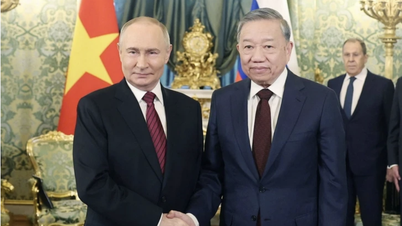






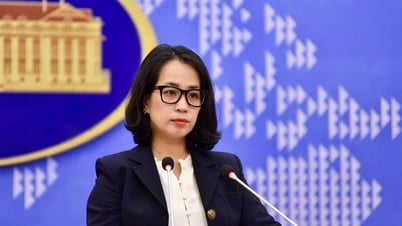


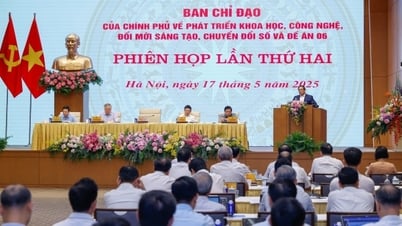
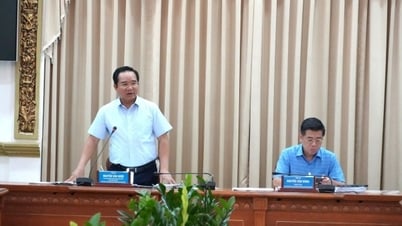
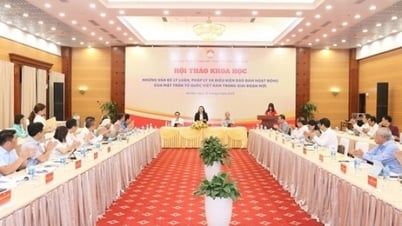
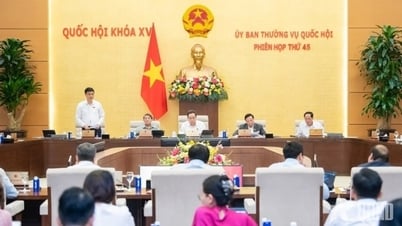
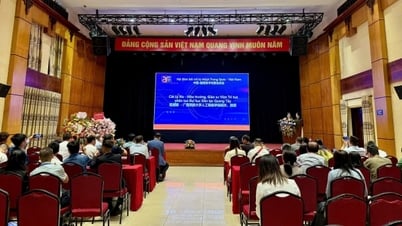





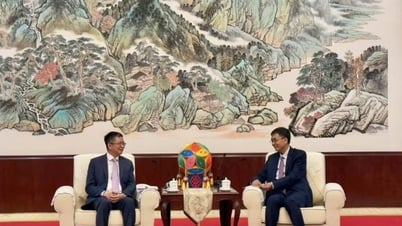




![[Photo] National conference to disseminate and implement Resolution No. 66-NQ/TW and Resolution No. 68-NQ/TW of the Politburo](https://vphoto.vietnam.vn/thumb/1200x675/vietnam/resource/IMAGE/2025/5/18/adf666b9303a4213998b395b05234b6a)































































Comment (0)